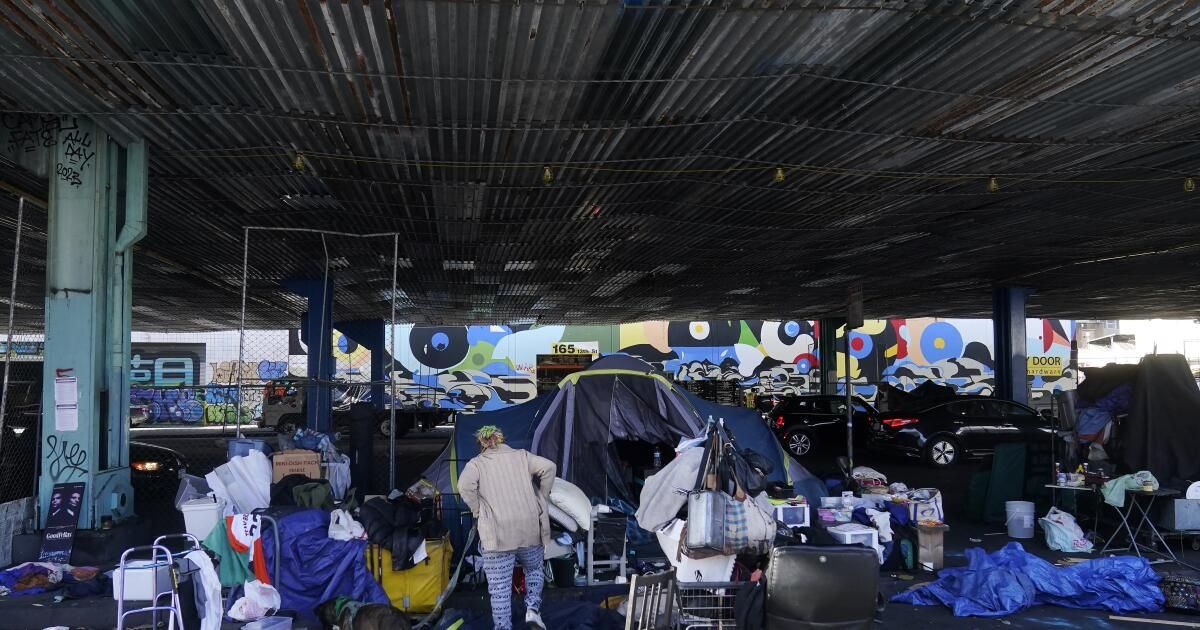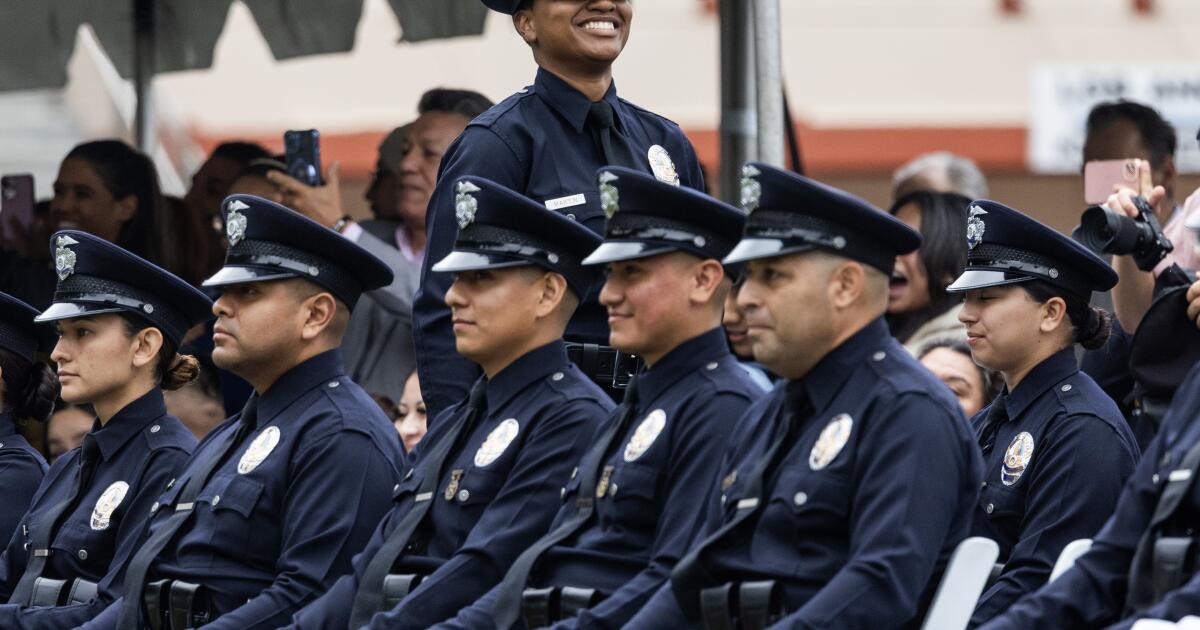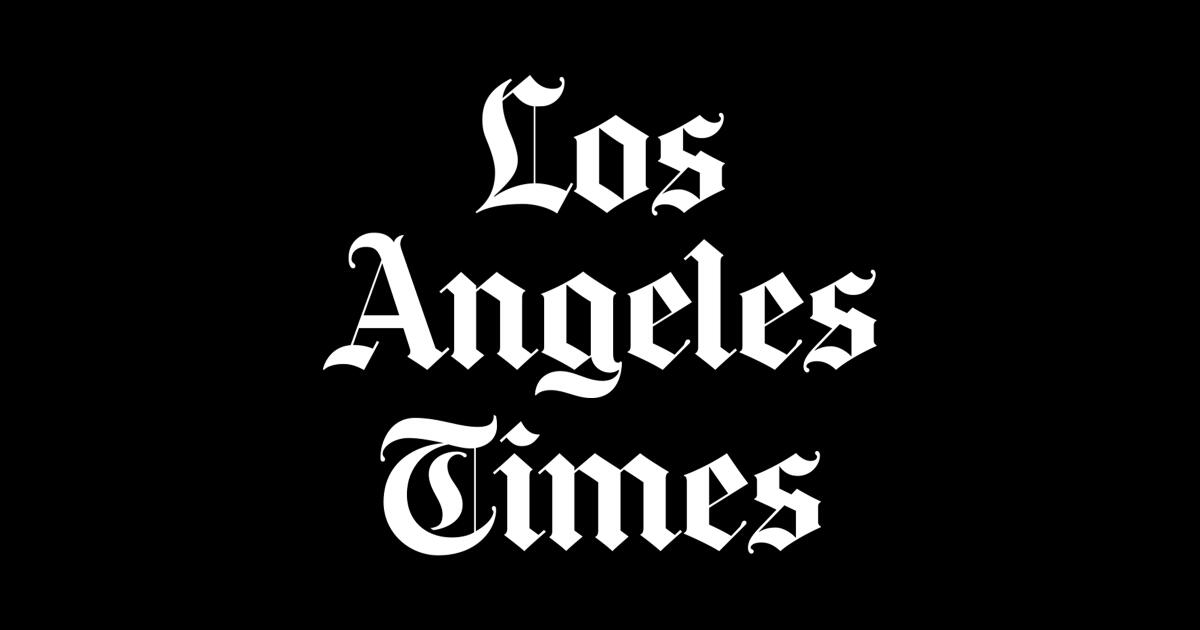On Friday, the Supreme Court ruled that cities in California and the West can enforce laws that restrict homeless encampments on sidewalks and other public property.
The justices disagreed with the 9th U.S. Circuit Court of Appeals in San Francisco, ruling that it is not “cruel and unusual” punishment for city officials to ban homeless people from sleeping on the streets or in parks.
California Gov. Gavin Newsom and city attorneys for Los Angeles, San Francisco, San Diego and Phoenix were among two dozen government and business groups urging the high court to hear the appeal in Grants Pass v. Johnson and reverse the Ninth Circuit.
While Newsom and others welcomed the ruling, it has been a contentious issue that has set the more moderate wing of the Democratic Party apart from progressives.
How will this decision change the way California officials approach homeless encampments?
The Ninth Circuit Court, whose jurisdiction covers nine Western states, has recognized constitutional protections for those who are homeless and have no place to sleep. It remains the only federal appeals court in the country to do so.
In a series of rulings, the court has held that cities violate the Eighth Amendment's ban on cruel and unusual punishment when police arrest or fine people who do not have access to shelter.
The Supreme Court ruling is a significant victory for municipal officials in the West and a setback for homeless rights advocates. Since 2018, advocates had won rulings in the Ninth Circuit holding that it was unconstitutional to enforce anti-camping laws against people who had no home or other place to sleep.
While nothing in the decision forces cities to take stronger action against homeless people, it will free some of them to do so.
Is it really up to local governments to decide how to address this?
Yeah.
Justice Neil M. Gorsuch wrote that people will disagree about which policy responses are best. Cities may experiment with one set of approaches only to discover later that another set works better, and they may find certain responses more appropriate for some communities than others.
“But in our democracy, that is their right,” he added.
“Homelessness is complex,” he wrote. “It has many causes, and so can the public policy responses necessary to address it. At its core, the question this case raises is whether the Eighth Amendment gives federal judges the primary responsibility for evaluating those cases and crafting those responses. It is not like this”.
Newsom said in a statement that the ruling provides state and local officials “the definitive authority to implement and enforce policies to remove unsafe encampments from our streets.”
“This decision removes legal ambiguities that have tied the hands of local officials for years and limited their ability to implement common sense measures to protect the safety and well-being of our communities,” he said.
What is the view from Los Angeles City Hall?
Los Angeles Mayor Karen Bass criticized the Supreme Court ruling, calling it “disappointing” and arguing that it should not be used to imprison homeless residents or move them from one city to another.
Bass, who declared an emergency on homelessness on his first day in office in December, said the ruling will not alter his approach to the crisis, which has largely focused on getting homeless Angelenos out of encampments. and move them to hotels, motels and other forms of temporary accommodation. accommodation.
Arresting homeless people or removing them from one community to another city is “more costly to taxpayers than solving the problem,” Bass said in a statement.
“The only way to address this crisis is to get people back into their homes and provide them with housing and support services,” he said. “In the city of Los Angeles, we will continue to lead with this approach, which helped thousands more Angelenos return home last year compared to the year before.”
Bass made homelessness his top priority upon taking office in December 2022. His Inside Safe initiative has addressed some of the city's largest and most entrenched encampments.
Inside Safe is billed as a voluntary program, in which outreach workers give homeless residents the option to move inside. However, the city also has a law, Municipal Code 41.18, that prohibits homeless people from sleeping or setting up tents in certain places.
Under the law, homeless people can be fined if they set up tents within 500 feet of schools or daycare centers. It also prohibits camps within two feet of a fire hydrant, five feet from a door or ten feet from a driveway.
City law also prohibits encampments from blocking wheelchair access and allows the City Council to designate certain “sensitive” areas, such as libraries, senior centers and highway overpasses, as no-encampment zones.
What do officials in other cities say?
In a telephone interview, Lancaster Mayor R. Rex Parris said the high court “finally made a good decision” and that the city plans “to be much more aggressive.” Parris added that he is not concerned about “proper camps,” but he is concerned about those “that camp near neighborhoods, near shopping centers.”
“We're going to move them very quickly,” he said. He added that the city has a “state-of-the-art homeless shelter” with beds available.
“It’s true that our issues are different than downtown Los Angeles, because we have 96 square miles and only a third of it is developed. There are plenty of places where these people can camp, it doesn’t have to be in our front yard,” Parris said. “In Los Angeles, that may not always be the case, you don’t have a lot of options.”
He added that “this is not an invitation for you to send your homeless people to us.”
Parris agreed with Gorsuch that the decision should be up to city officials, saying, “That's called democracy.”
“It's a local government decision,” he said. “If the federal government would stay out of most of the decisions we have to make, it would be a lot easier.”
In San Diego, one of the cities that urged the Supreme Court to hear the appeal, Mayor Todd Gloria said the ruling “provides much-needed clarity on how the city can enforce our laws against unsafe camping.”
However, he added that “it will not change our strategy on homelessness.”
“It’s clear that the 1,000 new shelter opportunities we’ve added over the past three years are working to reduce homelessness on the streets, and we intend to continue to seek additional beds,” she said in a statement.
San Francisco Mayor London Breed, who had welcomed the Supreme Court's review of the case in its broader effort over the past year to crack down on crime and homelessness in the city, said the decision “will help cities like San Francisco manage our public spaces more effectively and efficiently.”
Breed has long lamented that even as the city funnels more resources into temporary housing and treatment services, those on the streets often reject shelter.
There are an estimated 8,323 homeless people in San Francisco, a city of approximately 808,000 people. The growing number of tent cities and visible homelessness in neighborhoods like the Tenderloin and South of Market have become a focal point in Breed's uphill battle for re-election in November against four other serious rivals, including two centrist candidates who have largely based their campaigns on blaming Breed. due to worsening street conditions.
“San Francisco has made significant investments in shelters and housing, and we will continue to provide services from our hardworking city employees,” Breed said in a prepared statement. “But too often these offers are rejected, and we need to be able to enforce our laws, especially to prevent long-term encampments.”
Breed said the city will now adjust its policies in line with the ruling, which she said will help city departments and social workers do their jobs more effectively. The mayor said those who refuse help or already have shelter will no longer “be allowed to camp on our streets.”
In Sacramento, Mayor Darrell Steinberg has also fought to control homelessness and mitigate deteriorating conditions on downtown streets. In a statement after the ruling, Steinberg said homelessness had decreased by 41% between 2022 and 2024, “due to our strategy of combining more shelters, housing and services with the insistence that people cannot live in large encampments and violate ordinances that protect sidewalks, parks and other critical spaces.”
“This court decision should not change our balanced and compassionate approach,” Steinberg said.












